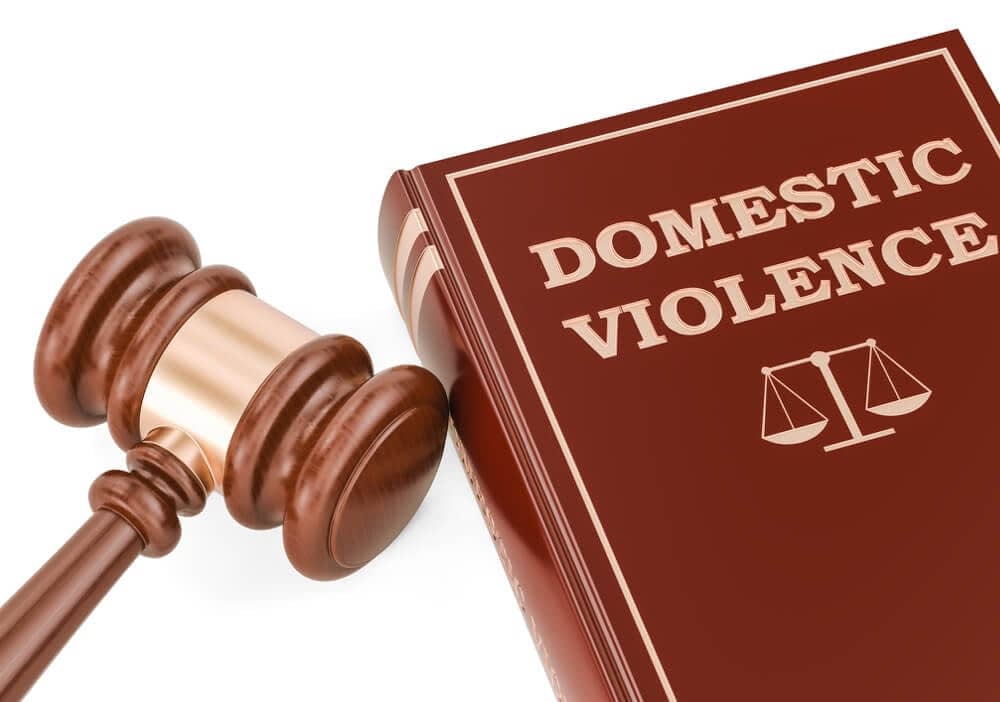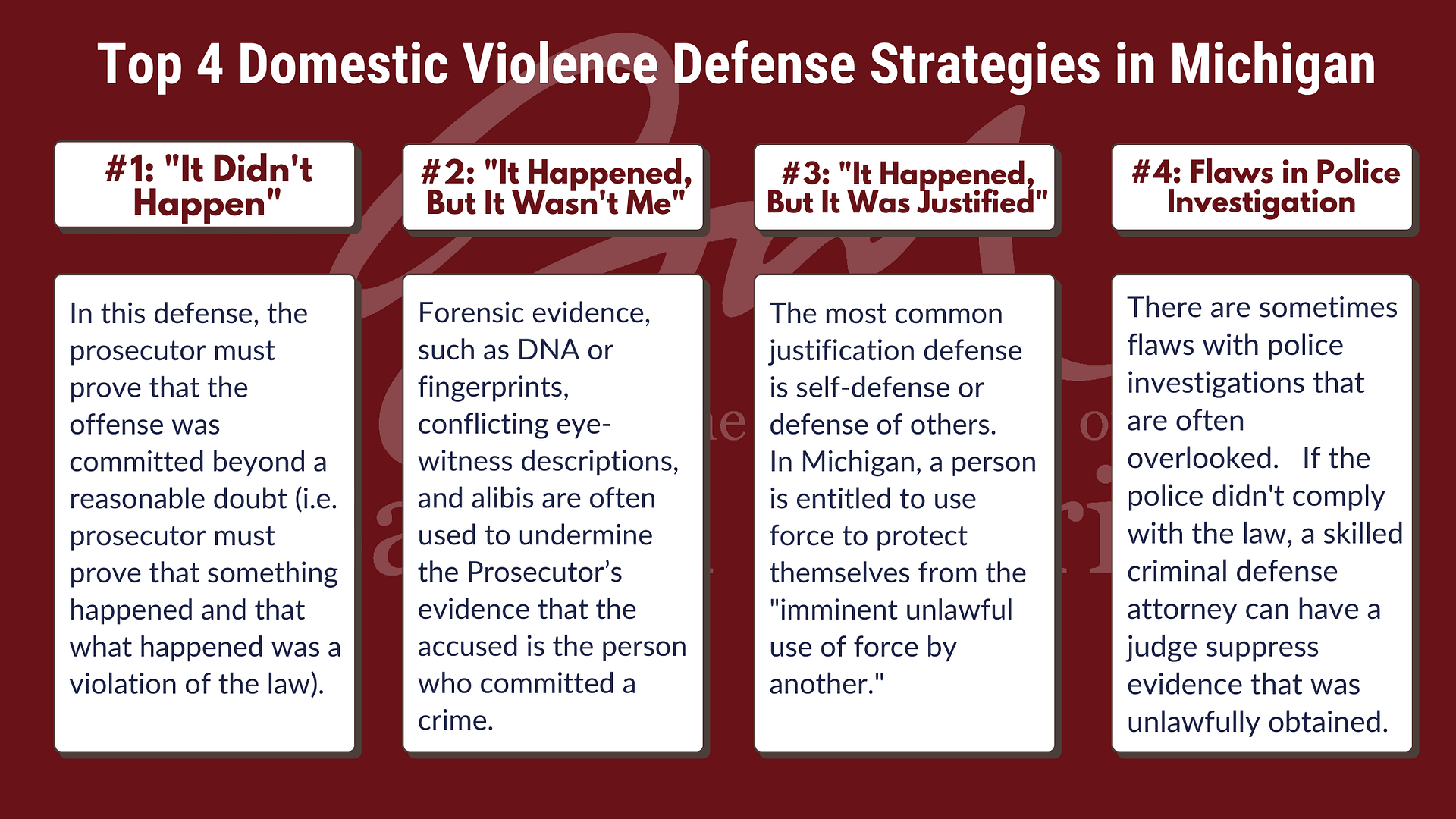Domestic Violence Defense Attorney: What Makes a Good One?
In a domestic violence case, having the right domestic violence defense attorney is the main difference between winning and losing at trial. There’s far more at stake than just a trial verdict.
While trial strategy is important, you also need an attorney who knows how to deal with:
- no-contact orders of bond
- understands the diversion programs that might be available to you, and
- understands the collateral consequences of a domestic violence conviction.
An experienced attorney extensively knows the ins and outs of strategy, no-contact orders and diversion programs.
Charged with domestic violence? Unhappy with your current attorney? Request a free consultation now.
What Makes a Successful Domestic Violence Defense Attorney?
If you’re questioned by police about allegations, you should always contact an attorney before making a statement. Unfortunately, in most domestic violence cases, the accused typically makes statements to police before contacting an attorney.
If you’re in this situation, you need an attorney to evaluate all the statements made by you, the accuser, and any other witnesses. They should do this before going over the possible defense strategies in your case.
Strategy and Defense with a Proper Domestic Violence Defense Attorney
All good defense begins with a thorough investigation of the facts.
Body-Worn Camera (BWC) footage often captures statements made by the accuser, sometimes that are inconsistent with their testimony.
We have also seen BWC footage show alleged injuries that weren’t visible.
It’s important to hire an attorney who knows to not just review the police report, but every statement made by the accuser – whether to the police, medical professionals, neighbors, friends or family.
Once we’ve assessed the facts of the accusations against you, we can then review what defenses are most applicable to your case.
Hiring a trial attorney from the get-go helps identify what strategy to adopt going forward.
After we’ve reviewed all facts and defenses, we’ll advise you on the outcome best suited for your case.
This is why it’s important to choose an attorney you trust. They can negotiate on your behalf and evaluate plea offers from the prosecuting attorney.
However, they can only do this if they have a successful track record defending your type of case.
No-Contact Orders
In nearly every domestic assault case, the court orders no contact between the accused and accuser while the case is pending.
If children are shared between the two, this can have severe collateral consequences for the accuser. This includes limiting parenting time and impacting child custody proceedings in family court.
If the accused and accuser live together, finding a new residence adds both expense and frustration to an already difficult situation.
No-contact orders can also set the accused up for failure.
If the accuser contacts the accused while the case is pending, it can even result in a violation of bond hearing.
Moreover, if the accuser gets a Personal Protection Order (PPO) from a civil court, the accused must relinquish any registered firearms.
Furthermore, an experienced domestic violence attorney will file motions and persuade the judge to modify or lift the no-contact order when appropriate.
Once we file a motion to amend the bond, we’ll represent you at the hearing and advocate for your freedom.
Charged with domestic violence? Unhappy with your current attorney? Request a free consultation now.
What Are Diversion Programs?
Short of a not-guilty verdict, diversion programs typically offer the best possible resolution to a domestic violence charge. Diversion programs permit the court to sentence someone to a term of probation, jail, or both. After successful completion of the terms and conditions of probation, the case is then dismissed.
In a domestic violence case, there are two main options for diversion: 769.4a diversion and HYTA.
MCL 769.4a
MCL 769.4a allows the court to sentence a first-time offender to a diversion program. After successful completion of a probation term, the court dismisses the case and no conviction is entered onto the defendant’s record.
Holmes Youthful Training Act
Holmes Youthful Training Act (HYTA) is a diversion program that’s available to anyone between the ages of 17 and 24.
Like 769.4a, it allows a judge to defer entering a conviction until the defendant completes probation.
If a defendant successfully completes all of the terms and conditions of probation, the case is dismissed. Without a conviction, the defendant will have a clean record.
Diversion programs are especially useful in eliminating the collateral consequences of a conviction. This is especially important, considering that a domestic violence conviction will prevent you from obtaining a Concealed Pistol License (CPL), or purchasing a firearm from a federally licensed firearms dealer.
Why You Need a Domestic Violence Defense Attorney
As you can see, there are many reasons why you need a domestic violence defense attorney for your case. It’s more than just a possible “guilty” verdict; your career, family and livelihood is on the line.
If you’re facing a domestic violence charge, call our domestic violence defense attorneys today at (248) 541-2600 to schedule a free consultation.
Our domestic violence attorneys have tried over 40 felony domestic violence cases. We know how prosecutors, judges, and juries evaluate these kinds of cases.
We’ll immediately and thoroughly evaluate your case and help you develop a strategy to get the best outcome possible.
Charged with domestic violence? Unhappy with your current attorney? Request a free consultation now.

Categories
Best Michigan Criminal Defense Lawyer
President of the Michigan Association of OWI Attorneys Lead Award-Winning Team
What Sets The Law Offices of Barton Morris Apart?
Over Two Decades of Legal Experience with Michigan DUI Laws and Other Practice Areas.
We’ll Tackle Even The Most Challenging Cases and Refuse To Back Down.
We Have a Successful Track-Record Obtaining Favorable Outcomes For Our Clients.
Our Seasoned Trial Lawyers Aren’t Afraid To Go To Court & Fight For Your Rights.
Phone Number:
(248) 712-1156
© The Law Offices of Barton Morris. All rights reserved.



